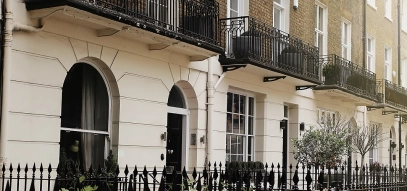Accounting
- FRS 102 - Under FRS102, if an entity has a contract that is onerous, the entity recognises and measures the present obligation under the contract as a provision (with a corresponding entry to the profit & loss account).
- IFRS - Under IFRS, there will be no onerous provision arising in respect of future lease payments since those lease payments are included in the lease liability, measured in accordance with IFRS16.
Direct tax
- Where accounts are drawn up in accordance with GAAP, as noted above, there may be a provision made in the accounts for anticipating losses for later years in respect of rent for leased properties which are to be vacated by the tenant.
- Generally, tax deductions would be expected to be allowed for such a provision
- This might accelerate tax deductions which, on the face of it, would be a good thing. However, for large groups with substantial losses, the use of those losses might be restricted when there is a return to profitability under the corporate loss reform rules, specifically where the group’s taxable profits exceed £5m.
VAT
- There would only be a need to consider VAT when a supply had arisen. A provision for future rental costs does not therefore normally result in a need to account for or recover VAT in relation to the provision at the time it is made.
- If a tenant has not paid a rental invoice and the invoice is more than six months overdue, then any input VAT recovered on that invoice must be paid back to HMRC. If such an invoice is taken into account in calculating the net amount due to HMRC for a VAT return due between March and June 2020, the payment for which has been deferred due to Covid-19, the associated input VAT has technically not been recovered, so no adjustment for VAT on the unpaid invoices would be required.
- In the case of a landlord, however, if the tenant has not paid rent due more than six months ago, and the amount has been written off as a bad debt, and the output tax has been paid to HMRC, then the landlord can reclaim the output VAT paid from HMRC.
- Some landlords may have deferred the payment of output VAT due to HMRC between March and June 2020 – in which case it would not be possible to claim bad debt relief until the VAT had been paid to HMRC.
- For future rental charges landlords not already doing so should consider issuing requests for payment to tenants instead of invoices before rent is paid, as this would defer the VAT being due until the date payment is received.
SDLT
- Non-payment of rent or provisions for future rent payments should have no consequences where the payments due under the lease remain due.
Get in touch
Please note there may be other tax and accounting issues to consider, and this can be a complex area to manage, so please do take further advice where necessary (please get in touch with Prasam Patel from our Real Estate Tax and Accounting team for further information).
Contact us today


